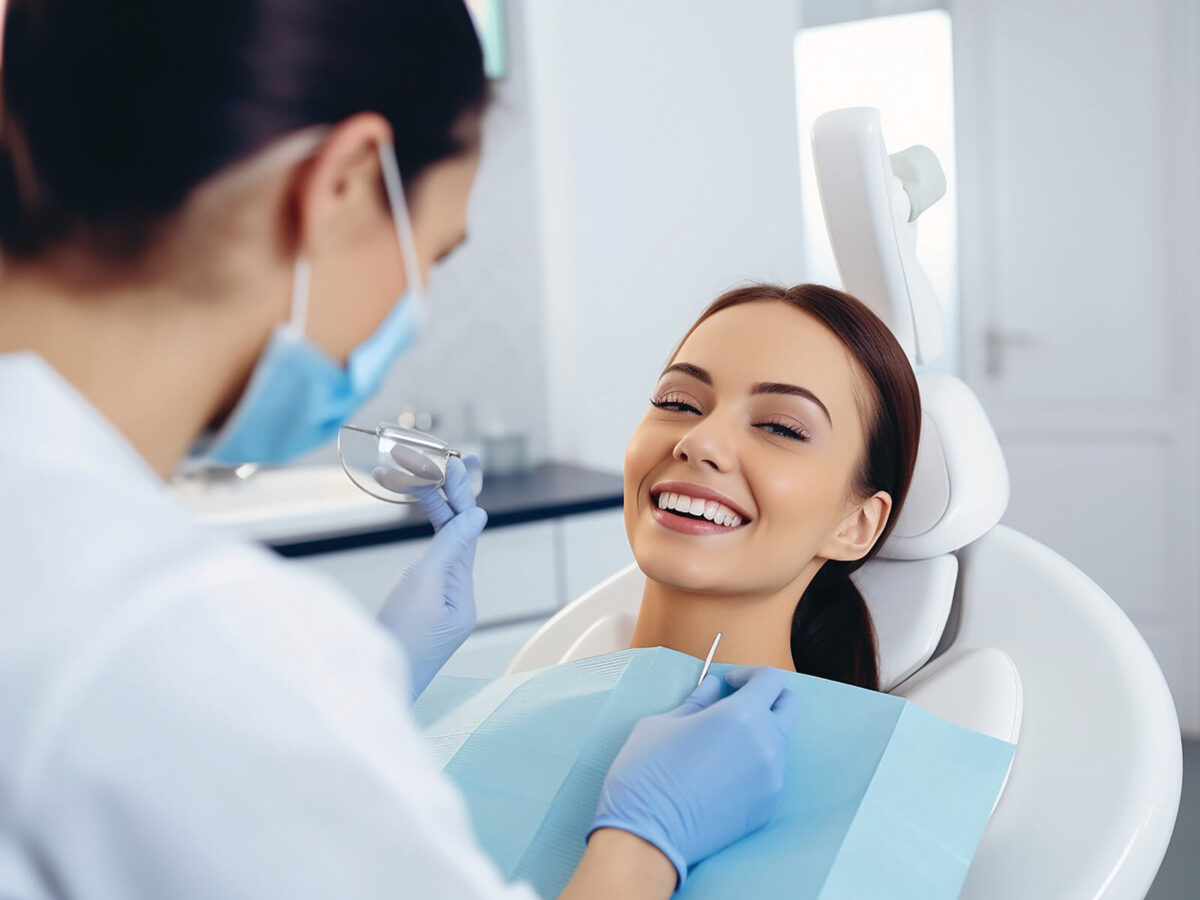Blog
Dental hygiene tips for healthy teeth & gums

Debunking Common Myths About Dental Health
Good dental hygiene is vital for general health. Many people are still figuring out how to keep their teeth and gums healthy. This lack of understanding might lead to the development of dangerous habits.
To ensure that you are fully aware of the importance of oral hygiene in maintaining a healthy mouth, it is necessary to review and dispel some of the most popular myths. Here, we will go over the top 8 dental hygiene truths for a healthier life.
Top 8 Dental Myths & The Actual Truth Behind Them
Myth 1: Plaque is removed more effectively with a harder bristle brush
In reality, a hard bristle brush can cause damage to your teeth and gums. With the apparent reasoning that employing more force would result in fresher teeth, abrasive brushing can result in the recession of the gums and the deterioration of tooth enamel.
Although the teeth would be cleaner. Brushing your teeth with a soft toothbrush in a gentle, circular motion can help keep your gums healthy and plaque from forming.
Myth 2: It is unnecessary to brush bleeding gums
Bleeding gums are typically caused by periodontal disease or inflammation, which can worsen if you do not care for your teeth properly. It is important to continue brushing, but it is recommended that you adhere to a comprehensive yet gentle routine for the cleansing of your teeth and gums.
Regular flossing and potentially an antimicrobial mouthwash can assist in the prevention of poor breath. If the hemorrhaging persists, it may indicate the presence of a more severe condition.
Myth 3: Tooth decay is caused by sugar
No, fructose is not the sole cause of tooth decay; however, it is a significant factor. The microorganisms in your mouth have the ability to convert any carbohydrate into sugars, which in turn generates acid that erodes tooth enamel.
Bread, spaghetti, and other starchy carbs fall into this category. If you want to keep your teeth healthy and free of cavities, you need to eat right, eat less often, and brush and floss every day.
Myth 4: Dental care is not a subject for ignorance
Regular dental checkups are important for maintaining good oral health, even if you don’t feel any pain or discomfort. Dentists are instructed to identify oral malignancy, gum disease, and cavities during their initial stages. To ensure optimal oral health and prevent potential issues, it is recommended that you undergo a dental examination and cleaning every six months.
Myth 5: Toothpaste bleaching has negative effects
The majority of whitening toothpastes are entirely safe for enamel when used by the manufacturer’s instructions. These toothpastes typically contain moderate abrasives and minute quantities of bleaching compounds to assist in the removal of surface stains.
If you are concerned about enamel erosion or have sensitive teeth, consult your dentist for recommendations on the most effective teeth whitening products.
Myth 6: Flossing is dispelled by proper brushing
In reality, flossing is the only method that can effectively remove food and debris from the spaces between teeth and beneath the gums, which are inaccessible to a toothbrush.
Therefore, it is a critical element of effective dental care. If flossing is neglected, cavities and gum disease may develop in these regions. Daily flossing is essential for the preservation of optimal dental hygiene.
Myth 7: Poor dental hygiene results in foul breath
The dental hygiene truths related to breathing state that there are numerous causes of bad breath, one of which is the neglect of appropriate dental hygiene. Poor breath can be caused by dry mouth, certain foods, or drugs. If you’re already very careful about your oral hygiene but still have foul breath after that, it’s best to see a dentist to rule out more serious problems.
Myth 8: Chewing gum is a substitute for consistent tooth cleansing
The reality is that sugar-free gum can reduce the probability of cavities by neutralizing oral acids and increasing saliva production. However, it cannot replace the necessity of regular brushing and flossing. It is essential to floss daily and brush twice a day to remove plaque and food particles that gums are unable to reach.
Conclusion
It is imperative to be informed about oral health misconceptions to maintain one’s oral health and prevent dental issues. Proper dental hygiene is essential for a healthy, attractive smile.
However, several therapy efficacy myths exist. Visit your dentist regularly and follow their instructions to maintain dental health. Know these dental hygiene truths to maintain your smile and teeth.


